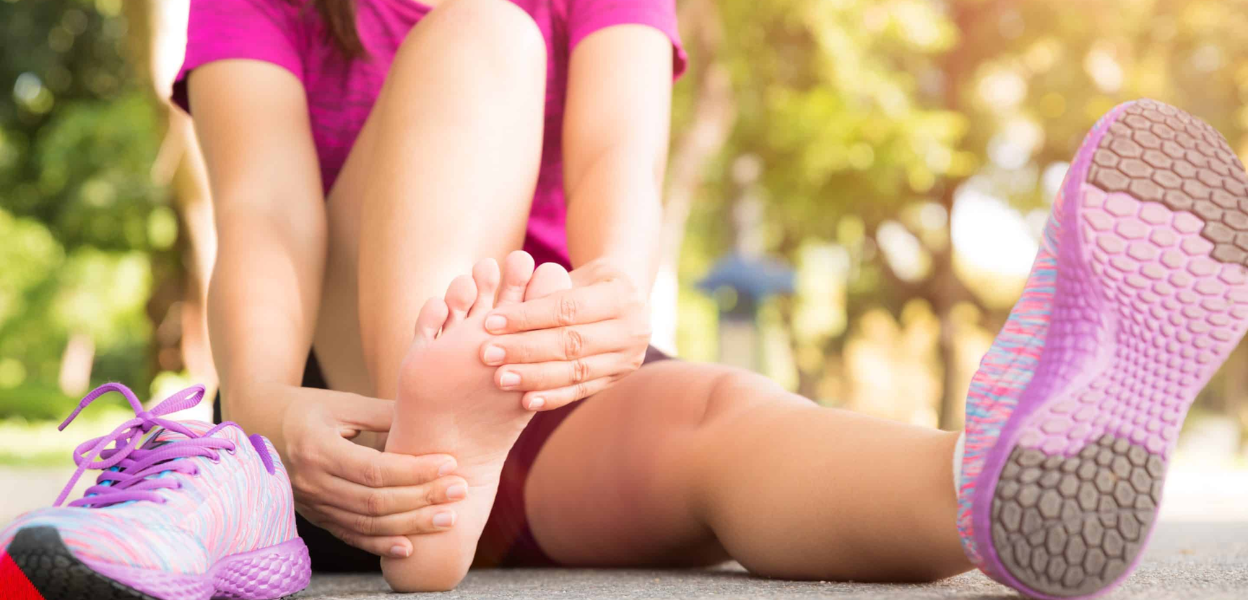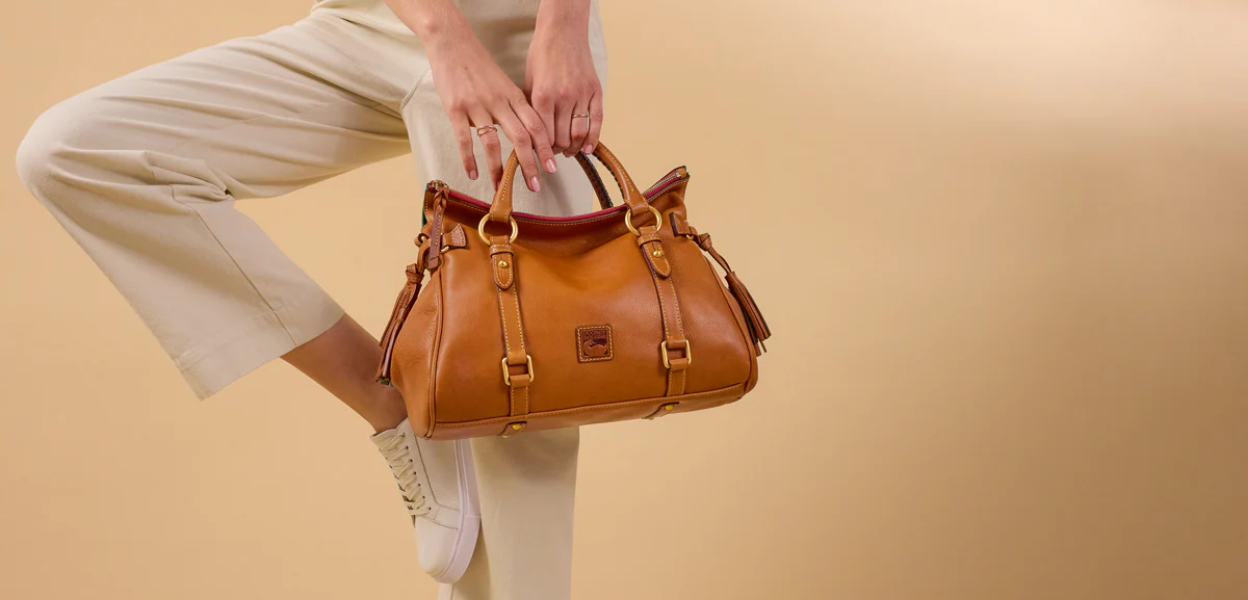Why Your Shoes Might Be the Reason Your Knees Always Hurt
If your knees hurt, your shoes could be to blame. Learn how to spot bad footwear habits and what to look for instead.
If you’re dealing with aching knees and can’t pinpoint why, you’re not alone. Knee pain is one of the most common complaints for both active and sedentary people alike. What’s surprising, though, is how often the cause isn’t your workout, your age, or even your posture. It could be your shoes.
Yes, really, your everyday footwear might be working against you. The link between footwear and knee pain is a lot stronger than most people realize. From poor cushioning and worn-out soles to shoes that change the way you walk, your footwear can mess with your alignment and quietly strain your joints over time.
In this blog, we’ll unpack exactly how your shoes could be causing (or worsening) knee pain, what red flags to watch for, and how to shop for the best footwear for knee pain. Whether you're an athlete, a nurse, or just someone who’s tired of that post-walk stiffness, this is your go-to guide.
The Overlooked Connection Between Footwear and Knee Pain
Your knees aren’t isolated; they’re part of a kinetic chain that starts at your feet. When something’s off at the ground level, it often travels up. If your feet aren’t landing evenly, your knees compensate to keep you moving.
That’s where footwear plays a starring role. Shoes that lack proper support or alignment throw off your stride, leading to added pressure on your knee joints. This is especially true if you’re wearing worn-out soles, shoes with no arch support, or designs that don’t match your foot type.
Can Bad Footwear Cause Knee Pain? Absolutely, and Here’s Why
Let’s break down what makes footwear a hidden culprit:
Poor Cushioning
Without enough shock absorption, every step you take sends force straight up to your knees. Over time, this can wear down cartilage and trigger inflammation.
Improper Heel Drop
The height difference between your heel and forefoot matters. A heel that's too high or too low can tilt your pelvis and shift how your knees bear weight.
Lack of Arch Support
When your arches aren’t supported properly, your feet can roll inward (overpronation). This causes your knees to rotate unnaturally with each step, stressing the joint.
Worn-Out Outsoles
Footwear that’s seen better days won’t support you like it should. Thin soles or uneven tread wear forces your knees to compensate with each stride.
Rigid or Unsupportive Uppers
Stiff materials that don’t flex with your foot can limit your natural movement, changing how pressure is distributed across your knees.
What to Look For in Footwear for Knee Pain Relief
The right shoes can make a world of difference. If your knees are aching more often than not, here’s what to look for in the best footwear for knee pain:
Shock-Absorbing Midsoles
Go for materials like EVA or PU foam. These absorb impact and reduce the stress transferred to your knees.
Moderate Heel Drop
A small heel lift (about 4-8mm) helps maintain better posture and knee alignment. Flat shoes aren’t always the answer.
Built-In Arch Support
This keeps your foot in a neutral position and prevents excessive rolling that can lead to knee pain.
Durable, Grippy Outsoles
Good traction keeps you stable, so your knees don’t have to work harder to stay balanced.
Contoured Insoles
These provide support where your feet need it most, helping to keep your knees properly aligned.
Special Footwear to Relieve Knee Pain Exists and It Works
Not all shoes are created equal. Some are specifically designed with knee health in mind. These types of special footwear to relieve knee pain often include the following features:
- Dual-density midsoles to control foot motion
- Rocker soles to reduce pressure on the knees during toe-off
- Cushioned heel cups to absorb shock at the first point of contact
- Lightweight materials to reduce overall joint load
Brands known for offering footwear for knee problems include names like Brooks (especially the Glycerin GTS series), Hoka One One (with their signature thick soles), and New Balance (for structured arch support). These aren’t just trendy sneakers—they’re biomechanical tools.
Footwear Tips for Specific Knee Conditions
If you’re managing chronic issues like arthritis, your shoe needs might be a little different. Let’s look at how footwear affects some common knee problems:
Best Footwear for Arthritic Knees
- Look for wide toe boxes that reduce pressure
- Shoes with plush, layered cushioning for less joint shock
- Adjustable closures (like velcro or laces) to accommodate swelling
Footwear for Overpronation or Flat Feet
- Motion control shoes with firm medial support
- Molded arch insoles or custom orthotics
Footwear for High Arches
- Flexible soles that encourage natural foot movement
- Extra cushioning in the midfoot area
Simple At-Home Test: Are Your Shoes the Problem?
Here’s how to do a quick self-check:
- Put your shoes on a flat surface and look at them from behind. Are they tilting inward or outward? That’s a sign they’re not supporting your natural alignment.
- Press on the heel. Is the cushioning flat or uneven? Time to replace them.
- Check the tread. If one side is more worn than the other, your gait may be uneven which affects your knees.
Lifestyle Tips to Pair With the Right Footwear
The best footwear for knee pain works even better when combined with a few smart habits:
- Stretch your calves and hamstrings regularly to ease knee tension
- Avoid walking barefoot on hard surfaces at home
- Replace your shoes every 300-500 miles or every 6-8 months for everyday wear
- Use orthotic inserts if your shoes lack support
If you’ve been struggling with persistent knee discomfort, it’s time to stop overlooking your shoes. Choosing the right footwear for knee pain is one of the easiest, most effective ways to protect your joints without major lifestyle changes. So the next time you’re shopping, skip the cute but flimsy pair. Instead, look for support, structure, and features built with your knees in mind. Because yes, bad shoes can absolutely be the reason your knees hurt but the good news is, the right ones can help you feel better fast.
When in doubt, talk to a podiatrist or orthopedic specialist, especially if you’re dealing with chronic pain. But for everyday comfort, smart footwear choices can go a long way.
For more on the best footwear, follow FlexGlimpse.
Related Blogs
E-Bikes for Short or Long Rides? Here’s What You Need to Know
As we all know, electric bikes are taking over the regular mode of transportation. However, the confusion that remains among people is whether e-bikes are for long distances or for shorter ones. People often backed out of their decision to buy the e-bike due to this confusion. Dig into this blog and find out about the e-bike and the distance it covers.
Luxury Crossbody Bags Under $100 That Deserve a Spot in Your Wardrobe From Dooney
Discover affordable luxury with five handpicked Dooney and Bourke crossbody bags under $100. Elegance and functionality now come at a better price.
Why Your Shoes Might Be the Reason Your Knees Always Hurt
If your knees hurt, your shoes could be to blame. Learn how to spot bad footwear habits and what to look for instead.



